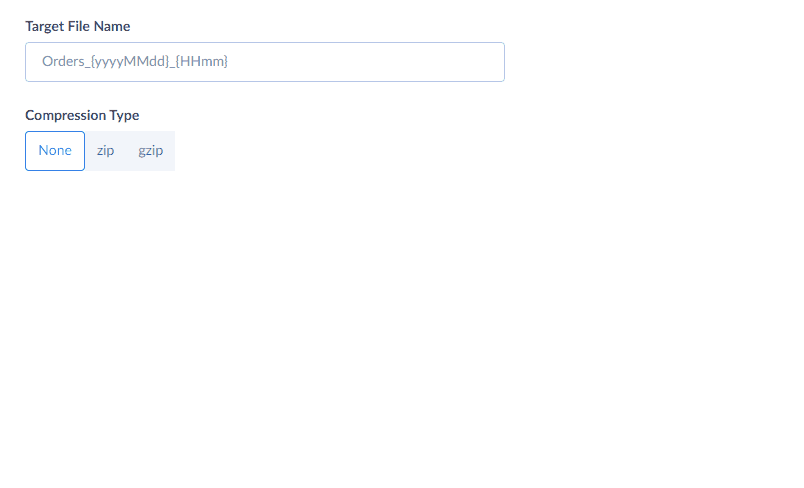September 2024
Target File Name

Reworked and slightly extended Target File Name functionality in Export. Added a separate Target Definition step, where you can use pre-built file name templates and file name masks to quickly generate custom names for the files you export.
New Connectors
Booqable — an All-in-one rental software for order management, online booking and inventory.
Connector Updates
ActiveCampaign
Now, you can conveniently map the nested objects of the complex structured OrderProducts field in the ECommerceOrders. See more details in ActiveCampaign topic.
AfterShip
We updated our AfterShip connector to 07-2024 API version.
The length of the tracking ID has changed from 24 characters to 32 characters. The Id field values in the Trackings object now differ from the values in previous API versions.
We added new Stores, Orders, Product, and Fulfillments objects. The Orders, Product, and Fulfillments objects have a complex structure and now support the Nested Objects feature in Import and the Unwind Nested Objects feature in Replication.
The Notifications object is deprecated. The Emails and SMSes fields are now available in the Trackings object.
The LastCheckPoint object is deprecated. All checkpoints are now stored in the CheckPoints object.
More information is available in AfterShip topic.
ChargeOver
We optimized the custom fields setup in our ChargeOver connector. The custom fields are now available under the UI names instead of inconvenient Custom1, Custom2, Custom3, …, Custom20 names. More information about custom fields is available in ChargeOver topic.
Freshdesk
We supported custom Freshdesk objects in Skyvia. More information about the support and the connector is available in the Freshdesk topic.
HubSpot
From now on you can get all the needed HubSpot objects associations using the Customize Associations parameter in the Connection Editor. See more details in HubSpot topic.
Jira Service Management
Now you can remove users from organization via API using our new stored procedure. More details are available in Jira Service Management topic.
Shopify
We supported Admin API Access Token authentication for Shopify. To use it, you should create and install the custom app in your Shopify account and obtain the corresponding access token.